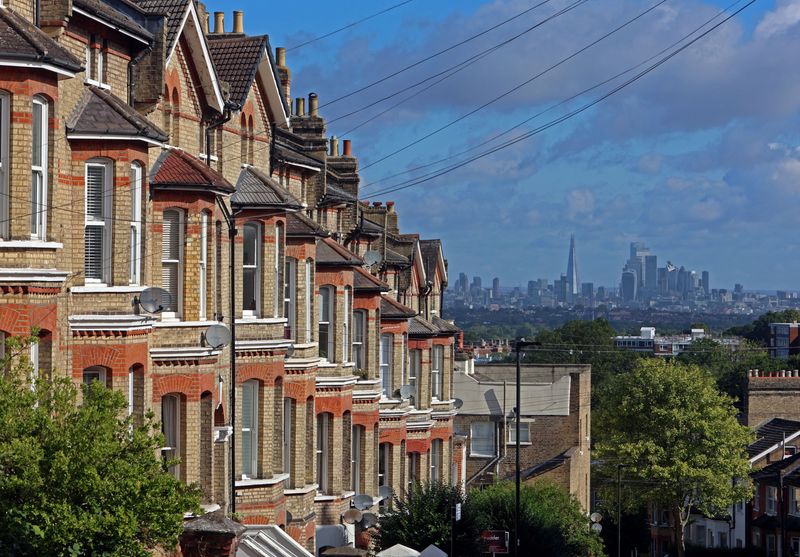Select Language

By David Milliken
LONDON (Reuters) - British house prices saw the most widespread falls since 2009 last month as interest rates hit a 15-year high, while rents surged by the most since 1999 as more landlords sold up, a survey showed on Thursday.
The Royal Institution of Chartered Surveyors (RICS) said its house price balance, which measures the difference between the percentage of surveyors reporting price rises and falls, dropped to -53 in July from a downwardly revised -48 for June.
This was the lowest reading since April 2009, during the depths of the global financial crisis, and below economists' forecasts in a Reuters poll for a drop to -50.
Interest rates for the commonest type of new mortgage in Britain - a two-year fixed rate - rose to their highest since 2008 at 6.86% in July, on expectations of further rate rises by the Bank of England as it battles high inflation.
Property sales fell in July at the fastest pace since April 2020 when the market was largely shut by the COVID-19 pandemic, and demand from prospective buyers also sank, according to RICS.
"The continued weak reading for the new buyer enquiries metric is indicative of the challenges facing prospective purchasers against a backdrop of economic uncertainty, rising interest rates and a tougher credit environment," RICS Chief Economist Simon Rubinsohn said.
Mortgage lender Nationwide reported last week that average house prices in July were 3.8% lower than a year earlier, the biggest annual fall since 2009, while earlier this week rival Halifax reported a 2.4% year-on-year decline.
Prices remain more than 20% higher than before the pandemic, however.
Conditions for renters were no easier, as some landlords sold up in the face of higher mortgage costs and increased regulation for the sector to require better energy efficiency and make it harder to evict tenants.
RICS' gauge of rents in the three months to July saw surveyors report the broadest increases since the series began in 1999. Demand from tenants rose at the fastest pace since early 2022, while the number of properties being offered by landlords fell by the most since the early in the pandemic.
Britain's Office for National Statistics reported that private-sector rents in England rose 5.1% in the year to June, the most since records began in 2006.

